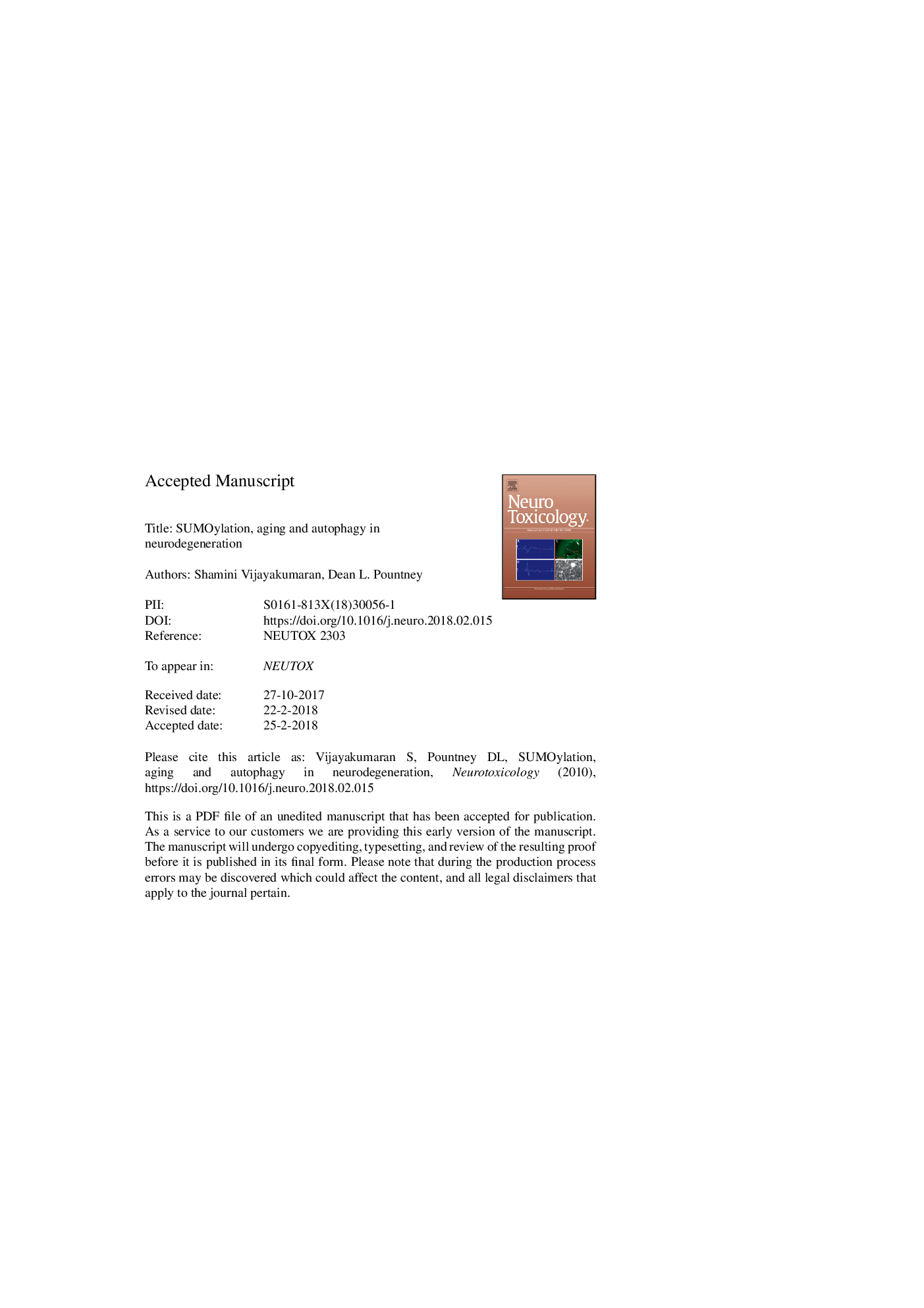| Article ID | Journal | Published Year | Pages | File Type |
|---|---|---|---|---|
| 8550106 | NeuroToxicology | 2018 | 16 Pages |
Abstract
Protein homeostasis is essential for the wellbeing of several cellular systems. Post-translational modifications (PTM) coordinate various pathways in response to abnormal aggregation of proteins in neurodegenerative disease states. In the presence of accumulating misfolded proteins and toxic aggregates, the small ubiquitin-like modifier (SUMO) is associated with various substrates, including chaperones and other recruited factors, for refolding and for clearance via proteolytic systems, such as the ubiquitin-proteasome pathway (UPS), chaperone-mediated autophagy (CMA) and macroautophagy. However, these pathological aggregates are also known to inhibit both the UPS and CMA, further creating a toxic burden on cells. This review suggests that re-routing cytotoxic aggregates towards selective macroautophagy by modulating the SUMO pathway could provide new mechanisms towards neuroprotection.
Related Topics
Life Sciences
Environmental Science
Health, Toxicology and Mutagenesis
Authors
Shamini Vijayakumaran, Dean L. Pountney,
